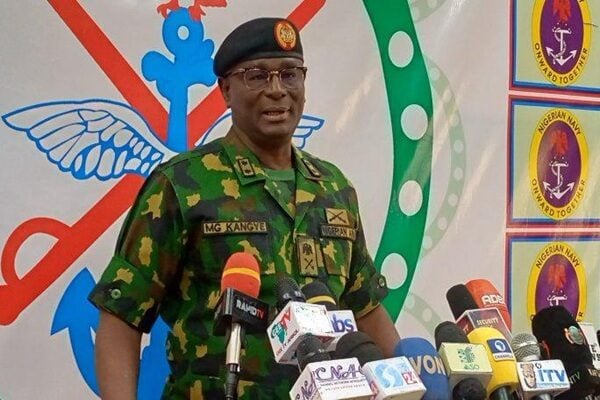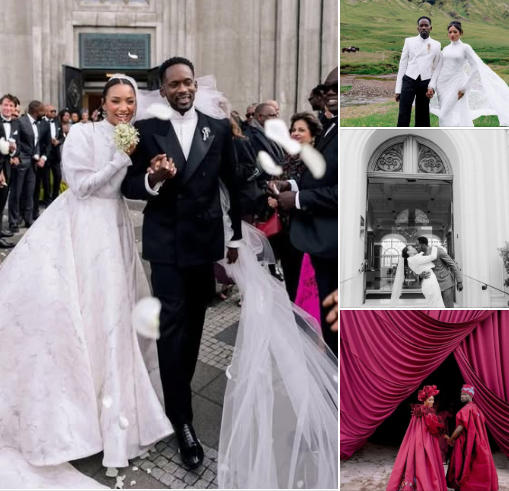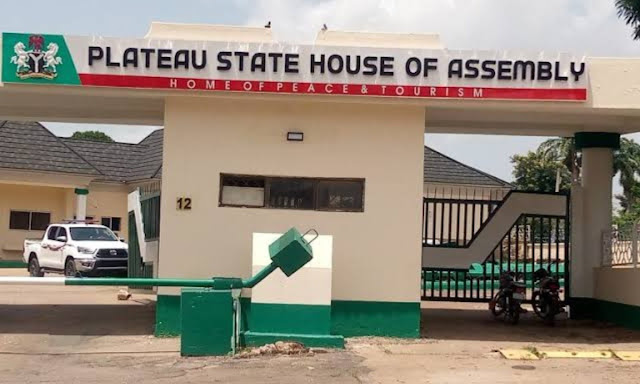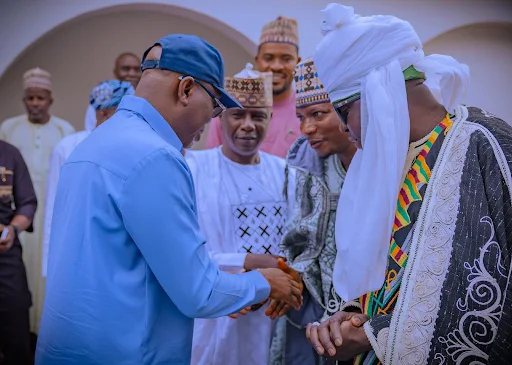In a decisive move to maintain order and uphold its authority, the Nigerian Defence Headquarters (DHQ) has issued a stern warning to retired soldiers, urging them to refrain from participating in protests or any activities that could undermine national stability. The announcement, made in September 2025, comes at a time of heightened socio-political tension in Nigeria, with the DHQ emphasizing the importance of discipline and loyalty among both active and retired military personnel. The statement has sparked widespread discussion, raising questions about the role of former soldiers in civic activism, the state of civil-military relations, and the broader implications for Nigeria’s democratic landscape.
The Context of the Warning
The DHQ’s statement, as reported by Linda Ikeji’s Blog, underscores the military’s concern over the potential involvement of retired soldiers in public protests. While the original article does not specify the exact protests in question, Nigeria has experienced a wave of demonstrations in recent years, driven by economic challenges, governance issues, and calls for systemic reform. In 2025, the country continues to grapple with inflation, unemployment, and insecurity, which have fueled public discontent and sporadic protests across major cities like Lagos, Abuja, and Port Harcourt.
Retired soldiers, with their training, discipline, and organizational skills, are seen as influential figures who could lend significant weight to protest movements. The DHQ’s warning suggests that the military leadership views such participation as a potential threat to national security, particularly if former soldiers were to organize or lead demonstrations. The statement also reflects the military’s broader efforts to maintain control over its personnel, both active and retired, amid growing public unrest.
The Nigerian Armed Forces, with a history rooted in the Royal West African Frontier Force and formalized upon Nigeria’s independence in 1960, have long played a central role in the country’s governance and security. Under the leadership of General Christopher Gwabin Musa, the Chief of Defence Staff, the DHQ has prioritized nurturing a professional military capable of addressing constitutional responsibilities in a collaborative environment. However, the involvement of retired soldiers in protests could complicate these efforts, potentially blurring the lines between military discipline and civilian activism.
Details of the DHQ’s Statement
According to the DHQ’s statement, retired soldiers are expected to uphold the values of loyalty, discipline, and patriotism that defined their service. The military leadership warned that participation in protests, particularly those perceived as destabilizing, could be seen as a betrayal of these principles. While the statement did not outline specific penalties, it implied that former soldiers could face consequences such as loss of benefits, legal action, or public censure. The DHQ also called on retired personnel to serve as ambassadors of peace, encouraging them to use their experience to promote dialogue rather than confrontation.
The warning comes in the wake of concerns about the politicization of military personnel, both active and retired. In recent years, Nigeria has seen instances where former soldiers have publicly criticized the government or aligned with opposition movements. For example, in 2024, senior lawyer Robert Clarke sparked controversy by suggesting that the military should take over power to restructure the country, prompting a swift rebuke from the DHQ. The 2025 warning to retired soldiers appears to be an extension of this stance, signaling the military’s determination to prevent any actions that could erode its apolitical stance or destabilize the nation.
The Role of Retired Soldiers in Nigeria
Retired soldiers occupy a unique position in Nigerian society. With over 200,000 active personnel and thousands more in retirement, the Nigerian military is one of the largest and most respected institutions in the country. Former soldiers often transition into roles such as private security consultants, community leaders, or political figures, leveraging their skills and networks to influence public life. However, their involvement in protests or political activism can create tensions, as it challenges the military’s tradition of neutrality and obedience to civilian authority.
In Nigeria, where protests have historically been met with mixed responses from authorities, the participation of retired soldiers could escalate tensions. Their military training gives them the ability to organize and mobilize effectively, potentially making protests more structured or confrontational. The DHQ’s warning reflects a recognition of this potential, as well as a desire to prevent any perception that the military, as an institution, endorses or tolerates dissent against the government.
The statement also highlights the delicate balance between freedom of expression and military discipline. While retired soldiers are civilians with the right to participate in civic activities, their association with the military subjects them to a higher standard of conduct. The DHQ’s message suggests that former soldiers are expected to act as role models, promoting stability rather than contributing to unrest.
Socio-Political Implications
The DHQ’s warning comes at a critical juncture in Nigeria’s history. The country is navigating a complex landscape marked by economic hardship, insecurity, and political polarization. Protests, such as the #EndSARS movement in 2020, have demonstrated the power of collective action to demand change, but they have also exposed the government’s sensitivity to public dissent. In 2025, economic challenges, including rising food prices and fuel costs, have fueled new waves of protests, with citizens calling for reforms to address systemic issues like corruption and unemployment.
The involvement of retired soldiers in such protests could have far-reaching implications. On one hand, their participation could lend legitimacy to grievances, as their service to the nation gives them a unique moral authority. On the other hand, it could deepen mistrust between the military and civilian authorities, particularly if protests turn violent or are perceived as anti-government. The DHQ’s warning is thus a preemptive measure to deter such scenarios, reinforcing the military’s commitment to supporting democratic governance.
The statement also raises questions about the broader state of civil-military relations in Nigeria. The military has a complex history in the country, having ruled for significant periods between 1966 and 1999. While Nigeria has maintained civilian rule since 1999, the military remains a powerful institution, and any perceived alignment of former soldiers with protest movements could reignite debates about its role in politics. The DHQ’s emphasis on discipline and loyalty is a reminder of its determination to remain a stabilizing force, even as public frustrations grow.
Public and Media Reactions
The DHQ’s warning has generated significant discussion on platforms like X, where Nigerians have shared diverse perspectives on the issue. Some users have supported the military’s stance, arguing that retired soldiers should uphold the values of their service and avoid actions that could destabilize the country. One X post reportedly stated, “Retired soldiers should be peacemakers, not protest leaders. Their training is for protecting Nigeria, not dividing it.” Others, however, have criticized the warning as an attempt to curtail free speech, with one user writing, “Once you retire, you’re a civilian. Why is the DHQ trying to control what ex-soldiers do?” These reactions reflect the polarized nature of public discourse in Nigeria, where issues of governance and civic rights are deeply contested.
Media outlets, including Linda Ikeji’s Blog, have amplified the story, framing it as part of broader conversations about governance and public order. The blog, known for its coverage of Nigerian news and entertainment, highlighted the DHQ’s statement as a significant development, reflecting its relevance to the country’s current socio-political climate. Other platforms have drawn parallels to previous instances where the military has sought to assert its authority, such as its 2024 warning against coup advocacy.
The Broader Context: Nigeria in 2025
To fully understand the significance of the DHQ’s warning, it’s essential to consider Nigeria’s socio-political and economic context in 2025. The country is facing multiple challenges, including ongoing insurgencies in the Northeast, banditry in the Northwest, and separatist agitations in the Southeast. The military, under General Musa’s leadership, has been actively involved in countering these threats, with President Bola Ahmed Tinubu praising the armed forces for their efforts during a 2025 summit in Japan.
Economic difficulties have further complicated the situation. Inflation, driven by global and domestic factors, has eroded purchasing power, while unemployment remains a pressing issue, particularly among youth. These conditions have fueled protests, with citizens demanding better governance and economic relief. The DHQ’s warning to retired soldiers can thus be seen as part of a broader strategy to manage public unrest and maintain stability in a volatile environment.
The military’s role in this context is multifaceted. As an institution tasked with protecting national security, it must navigate the delicate balance between supporting the government and respecting democratic principles. The warning to retired soldiers underscores this tension, highlighting the military’s desire to prevent any actions that could be interpreted as undermining the state.
Looking Ahead: Implications for Nigeria’s Future
The DHQ’s statement is a reminder of the challenges facing Nigeria as it seeks to strengthen its democratic institutions. While the military has remained subordinate to civilian authority since 1999, its influence remains significant, and its actions are closely watched by both citizens and international observers. The warning to retired soldiers signals a commitment to maintaining order, but it also raises questions about the boundaries of civic engagement for former military personnel.
Moving forward, the government and military will need to address the root causes of public discontent to prevent further unrest. Economic reforms, improved security, and transparent governance could reduce the need for protests, thereby alleviating concerns about the involvement of retired soldiers. At the same time, the military must continue to foster trust with civilians, ensuring that its actions are seen as protective rather than repressive.
For retired soldiers, the DHQ’s warning serves as a call to navigate their post-service lives with caution. While they have the right to engage in civic activities, they must weigh the potential consequences of their actions, particularly in a country where tensions between the state and citizens are high. Their role as community leaders and influencers could be leveraged to promote dialogue and reconciliation, aligning with the DHQ’s call for them to act as ambassadors of peace.
Conclusion
The Nigerian Defence Headquarters’ warning to retired soldiers against participating in protests is a significant development in the country’s ongoing efforts to balance security, governance, and civic rights. Issued in September 2025, the statement reflects the military’s commitment to maintaining discipline and stability amid rising public unrest. By addressing retired soldiers specifically, the DHQ underscores the unique influence of former military personnel and the potential risks their involvement in protests could pose.
As Nigeria navigates its complex challenges, the relationship between the military, retired personnel, and the broader society will remain a critical factor in shaping the country’s future. The DHQ’s warning is a call for unity and restraint, but it also highlights the need for dialogue and reforms to address the underlying issues driving public discontent. For now, the nation watches closely, as the actions of both the military and its retired members continue to shape the narrative of Nigeria’s democratic journey.






